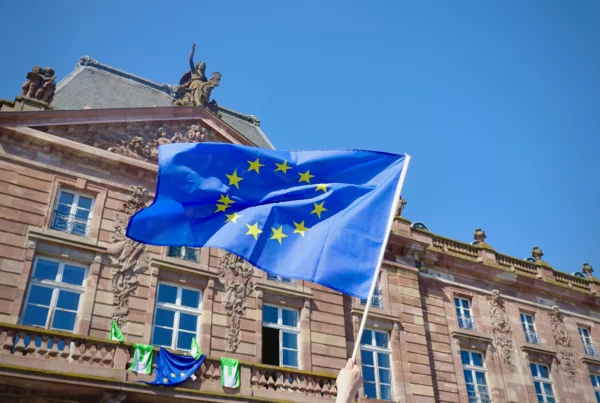Training local police forces on conflict-related sexual violence in Ukraine
Sexual violence has been used as a weapon of war in conflicts since time immemorial. Tragically, there is no exception with Russian armed forces invading Ukraine. Not only are women, men and children getting sexually assaulted, but they carry with them the stigma and trauma long after.
As part of its mission, the EU Advisory Mission to Ukraine (EUAM) has been advising and supporting the civilian security sector to ensure “effective and accountable law enforcement agencies”, “a trusted judiciary”, and “prevention of secondary stigmatisation of survivors” of conflict-related sexual violence (CRSV). In addition to providing advice, the EUAM has been providing training to the police, courts and prosecutors.
In July of 2022, a Ministry of Internal Affairs academy event was organised with 50 cadets from Lviv and Donetsk Police academies to raise their awareness about gender stereotypes. The EUAM has also organised community safety dialogues in Chernivtsi, Lviv and other Western Ukrainian territories which are “aimed at enhancing trust between civil society, authorities and law enforcement through a frank exchange of views and cooperation.” Priorities identified in the dialogues include “community safety, support for internally displaced people, fighting gender-based violence and disinformation.”
More than a year after the beginning of this violent conflict, many women and girls have suffered from sexual violence whether they stayed or fled their homes. With awareness and adequate initiatives, local and regional governments can better support victims of conflict-related sexual violence.
Additional resources
- UN Security Council Resolution 1325 on Women, Peace and Security
- Rebuilding with Women: Amplifying their Voices in Ukraine’s Recovery (Cities Alliance, 2022)
- Brussels Declaration on Actions towards Empowering Women in Conflicts (June 2022)
2023 International Women’s Rights Day series: “Five new Charter articles illustrated through local actions”
This article is part of a series published by CEMR to celebrate 2023 International Women’s Rights Day. This series informs on impactful initiatives carried out by local and regional governments to promote gender justice.
These projects embody the updated European Charter for Equality of Women and Men in Local Life as they show how five of its nine new articles can be put into practice. Together, they represent an inspiring step towards a more gender-equal Europe.
The updated Charter is available currently in English, French and easy-to-read English versions.
Any questions regarding the update or the actions highlighted in this series can be directed to contact@ccre-cemr.org or the relevant national coordinator for the Charter in your country.

Director – Policy & Impact







